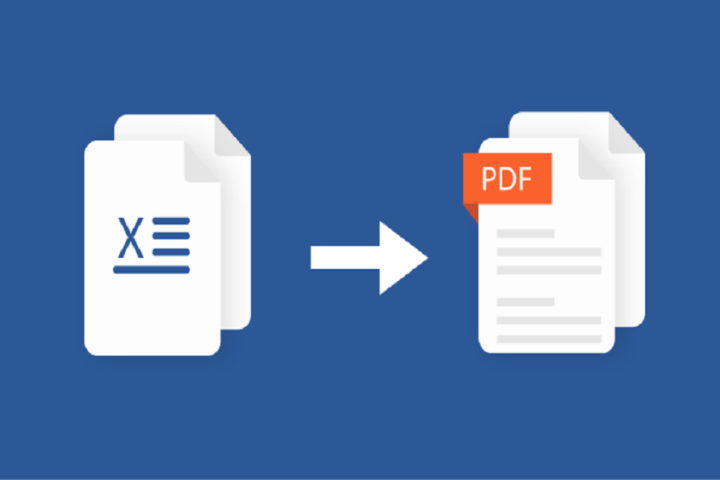In the digital age, the tourism sector is undergoing a paradigm shift, fueled by the strategic integration of data science. This exploration delves into the multifaceted ways in which data science is harnessed within the tourism industry, elevating the travel experience, refining marketing strategies, and ensuring a personalized approach to meet the diverse needs of customers. As we embark on this journey, it is imperative to first understand the significance of compressing Word documents to PDF, a fundamental step in efficient data handling within this dynamic context.
The Role of Compression: Enhancing Data Portability
The role of compression in enhancing data portability is a pivotal aspect of modern information management, particularly in sectors like tourism where efficient storage and seamless sharing of critical documents are essential. In this exploration, we unravel the significance of compression techniques, focusing on their transformative influence on document storage and accessibility within the dynamic landscape of the tourism industry.
Efficient Document Storage
The journey from Word to PDF involves compression techniques that play a crucial role in efficient document storage. In the tourism sector, where vast amounts of information are generated daily, compressing documents ensures not only optimal storage but also quick retrieval, contributing to seamless operations.
Facilitating Sharing and Accessibility
Compression is paramount in facilitating the sharing of critical tourism documents. PDFs, compressed from Word files, become easily shareable across various platforms, enhancing accessibility for stakeholders involved in travel planning, management, and marketing.
Elevating the Travel Experience with Data Science
Elevating the travel experience with data science marks a revolutionary paradigm shift in the tourism industry, where the strategic application of advanced analytical techniques transforms vast datasets into personalized recommendations and predictive insights. In this exploration, we delve into the multifaceted ways data science reshapes the travel landscape, offering a more tailored and enriching journey for every traveler.
Personalized Recommendations
Data science algorithms analyze vast datasets, including user preferences, travel histories, and reviews. Leveraging this information, tourism platforms can offer personalized travel recommendations, ensuring that each traveler receives tailored suggestions based on their unique preferences.
Predictive Analytics for Demand Forecasting
Advanced analytics enable the tourism industry to predict travel trends and demand patterns. By harnessing historical data, weather forecasts, and special events calendars, businesses can optimize resource allocation and provide better services during peak travel times.
Optimizing Marketing Strategies
Optimizing marketing strategies through data science heralds a new era in the tourism industry, where insights derived from comprehensive data analysis empower businesses to precisely target audiences, tailor promotions, and strategically position their offerings. In this exploration, we unravel the dynamic impact of data-driven marketing on the tourism sector, enhancing promotional effectiveness and ensuring a more engaging interaction with potential travelers.
Targeted Marketing Campaigns
Data science empowers tourism businesses to conduct targeted marketing campaigns. By analyzing customer demographics, preferences, and behaviors, marketing efforts can be precisely directed, maximizing the impact of promotional activities.
Social Media Analytics
Social media plays a pivotal role in shaping travel trends. Data science tools analyze social media platforms to gauge sentiment, identify popular destinations, and understand emerging travel interests. This information guides marketing strategies to align with current consumer preferences.
Catering to Customer Needs
Catering to customer needs has become a dynamic and personalized endeavor in the tourism sector, as data science takes center stage in understanding and fulfilling the diverse requirements of travelers. In this exploration, we delve into how data-driven insights enhance customer service, offering a more responsive and tailored experience that goes beyond expectations in the ever-evolving landscape of the tourism industry.
Enhanced Customer Service
Data-driven insights enhance customer service in the tourism sector. From real-time chatbots providing travel information to analyzing feedback for continuous improvement, data science ensures that customer needs are not only met but exceeded.
Dynamic Pricing Strategies
Pricing in the tourism industry is a delicate balance. Data science models evaluate various factors such as demand, competitor pricing, and historical data to dynamically adjust prices. This ensures competitiveness and maximizes revenue for service providers.
Challenges in Implementing Data Science in Tourism
Navigating the implementation of data science in the tourism sector is not without its complexities, as businesses grapple with various challenges that accompany the integration of advanced technologies. In this exploration, we delve into the hurdles faced by the tourism industry, from privacy concerns to the integration of legacy systems, highlighting the intricate landscape of implementing data science for enhanced operational efficiency.
Data Privacy Concerns
The collection and utilization of vast amounts of customer data raise concerns about privacy. Tourism businesses must navigate these concerns, ensuring compliance with regulations and building trust with their clientele.
Integration of Legacy Systems
Many tourism businesses still operate with legacy systems that may not be inherently compatible with advanced data science technologies. The integration process poses challenges that need to be carefully managed for seamless operations.
Future Outlook: Data-Driven Tourism
The future outlook of data-driven tourism unveils a landscape where advanced technologies and data science converge to redefine the way we explore and experience the world. In this exploration, we anticipate the transformative potential of data-driven insights, from augmented reality experiences to sustainability analytics, shaping the future of the tourism industry into a more immersive, responsible, and technologically-driven domain.
Augmented Reality (AR) Experiences
The future of data science in tourism may involve the integration of augmented reality to provide immersive travel experiences. AR applications could offer real-time information, historical insights, and interactive maps to enhance tourists’ understanding of their surroundings.
Sustainability Analytics
As sustainability becomes a focal point in the tourism industry, data science can play a pivotal role in analyzing and optimizing sustainable practices. From carbon footprint calculations to eco-friendly travel recommendations, data-driven insights can contribute to responsible tourism.
Conclusion
In conclusion, data science has become the compass guiding the tourism sector into a new era of efficiency, personalization, and innovation. From compressing Word documents to providing personalized travel recommendations, the symbiotic relationship between data science and the tourism industry is transforming the way we explore the world. As technology continues to evolve, the future promises even more immersive and sustainable travel experiences, driven by insights derived from the vast sea of data that defines the modern tourism landscape.




